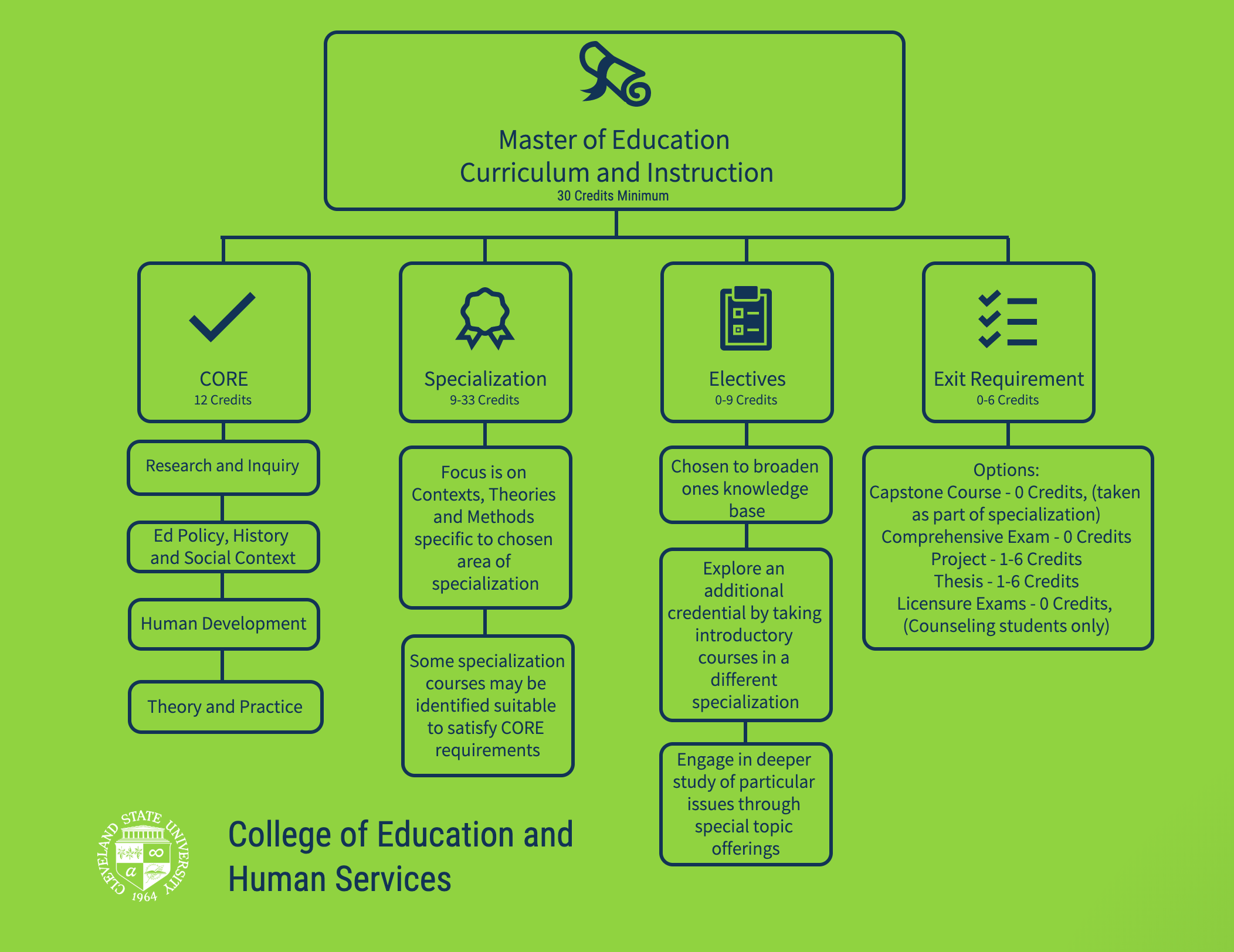 Master of Education - Curriculum and Instruction
Master of Education - Curriculum and Instruction
Programs leading to the Master of Education are divided into four broad categories: administration, counseling and adult learning, curriculum and instruction, and health and human performance. Graduates work as administrators, educators, counselors, trainers, and researchers in a variety of education and human services contexts. The college offers a number of specializations in the Master of Education as well as licenses, endorsements or certificates that may be completed prior to finishing a degree. Specializations, licenses and certificates in each category are listed below:
Administration – Provides conceptual, technical, and theoretical knowledge in the human resources area needed to assume K-12 principalship or other entry-level administrative positions. Key areas explored in the program are curriculum, supervision, guidance, personnel administration, community relations, school management, and school law. Specializations include:
- Administration, Educational (with principal licensure)
Administration licenses include:
- Principal
- Superintendent (Post-Master’s)
Counseling and Adult Learning and Development – Counseling programs prepare counselors to work in clinical mental health or school settings. Programs emphasize a clinical orientation, focusing on theory and skills in counseling (individual, group, and family), assessment, human behavior and development, diagnosis and treatment of mental and emotional disorders, intervention methods, lifestyle and career development, legal and ethical responsibilities, and service-delivery systems. The adult learning program prepares adult educators to work in a variety of adult education venues providing job related training and development or offering professional education seminars. Specializations include:
- Adult Learning and Development Program, M.Ed.
- Counseling, Clinical Mental Health, M.Ed.
- Counseling, School, M.Ed.
Counseling licenses include:
- Professional Counselor
- School Counselor
Counseling/Adult Learning and Development certificates include:
- Adult Learning and Development
- Chemical Dependency Counseling
- Early Childhood Mental Health Counseling
- Health Professions Education, M.Ed.
Curriculum and Instruction – Offers initial licensure or advanced preparation for K-12 teaching of a particular grade level, content, or student population. Programs leading to licensure or endorsement require students to follow a prescribed program of study. Students working on a general Curriculum and Instruction degree may work with an advisor to develop an individualized plan by completing core requirements and a specialization sequence tailored to individual goals.
- Early Childhood Education (with licensure), M.Ed.
- Educational Research and Assessment, M.Ed.
- Educational Technology (with endorsement), M.Ed.
- Elementary and Secondary Education (Advanced and Applied Teaching), M.Ed.
- Foreign Language Education, Chinese (with licensure), M.Ed.
- Gifted and Talented Learners (with licensure), M.Ed.
- Individualized option
- Literacy Development and Instruction, M.Ed. (Reading and TESOL endorsement available)
- Special Education (with licensure), M.Ed.
- Urban Secondary Teaching (licensure, adolescent/young adult 7-12 or multi-age in Spanish), M.Ed.
Licensure, endorsements, and certificates include:
- Teaching Licenses
- Early childhood
- Intervention specialist (mild/moderate needs, moderate/intensive needs, early childhood)
- Adolescent/young adult (integrated language arts, integrated mathematics, integrated social studies, integrated science)
- Multi-age Chinese and Spanish
- Endorsements (added onto existing teaching license)
- Computer/Technology
- Teaching English to Speakers of Other Languages (TESOL)
- Early Childhood Generalist
- Certificates
- Board Certified Behavior Analysis (approved course sequence)
- Data-based Decision Making
- Foundations of Autism Spectrum Disorder
- Online Teaching
- Teaching English to Speakers of Other Languages (TESOL)

